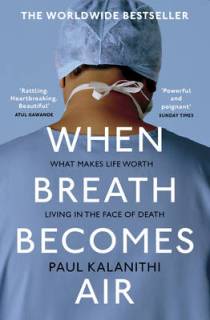I had intended for this to be a post before the winner was announced – however, that plan got put on the backburner and here I am now, 45 minutes after the winner was announced, a little in shock. It’s the most wonderful kind of shock because I am so, so happy with which book has been named the winner.
To warn you, this is a 500 word ramble.
In case you haven’t seen who won – I’m about to spoil it for you. It was Mend the Living by Maylis de Kerangal. This has made Wellcome Prize history as it’s the first book to have been translated and won, which is incredible – and honestly a testament to the translation skill. In a prize shortlist which was so diverse, fiction and non fiction, men and women, the possibility of a posthumous award, the outcome of a translated book winning – honestly it’s boggling how wonderfully diverse the shortlist was and I really, really love that this book won.
Mend the Living didn’t shout like some books do, it was more quiet in what it was putting across. It’s one that the more I’ve thought about since I finished it 2 weeks ago, the more I’ve loved it – to the point that I actually changed my rating on goodreads and bumped this up to a 5* book. It was quiet in both the way it was written, and also the media surrounding it – a lot of focus was on When Breath Becomes Air and The Tidal Zone. The hard science in The Gene and I Contain Multitudes was overwhelming and impressive, and I enjoyed both those books.
For me, the two it came down to were How to Survive a Plague and Mend the Living – out of the two the better book won in my opinion. They were both a lot less publicised, somewhat pushed to the back of the tables in my local bookshops, they were definitely not talked about enough. I actually had a conversation with a few of the booksellers in my local Waterstones, and told them that out of the entire shortlist Mend the Living was the one I would say ‘read’ – and a couple of them did.
I’m quite sad I didn’t put a prediction post up – because I would so love to have been right before the event (it’s all very well and good saying I TOLD YOU SO, but when there’s no evidence to back it up it’s not nearly as impressive!)
Seriously folks, read this book. It’s incredible and it really won’t disappoint. It’s a very, very worthy winner and I will be thrusting it in to several people’s hands in the near future. I hope that several more of her books are translated in to English because I would so, so love to see what else this woman can write.
If you can’t tell, I’m very happy.






